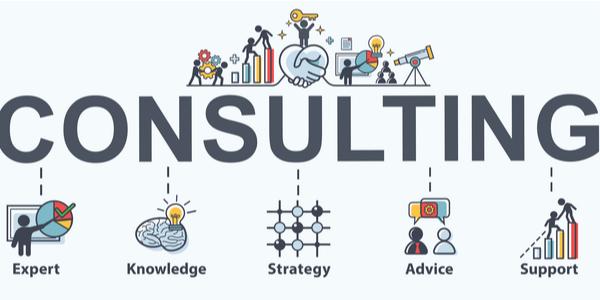
The role of an IT consultant is multifaceted, demanding a blend of technical expertise, communication skills, and business acumen. Whether you’re just starting your journey as an IT consultant or aiming to enhance your existing skills, continuous improvement is key. In this article, we’ll explore strategies to help you become a more effective and valuable IT consultant.
1. Develop a Strong Technical Foundation: Technical proficiency is the bedrock of IT consulting. Stay updated with the latest trends, tools, and technologies in your field. Invest time in enhancing your knowledge of programming languages, networking, cloud computing, cybersecurity, and other relevant areas.
2. Hone Your Problem-Solving Skills: IT consultants are often brought in to solve complex problems. Practice critical thinking and creative problem-solving by tackling challenging scenarios, breaking them down into manageable steps, and devising effective solutions.
3. Understand Business Needs: A successful IT consultant doesn’t just focus on technology; they understand the broader business context. Learn about your clients’ industries, their goals, and challenges. Align your solutions with their strategic objectives to provide meaningful value.
4. Effective Communication: Clear communication is paramount. Develop strong verbal and written communication skills to explain technical concepts to non-technical stakeholders. Tailor your language to your audience, ensuring they understand your recommendations.
5. Active Listening: Listening is as important as speaking. Take the time to understand your clients’ requirements, concerns, and feedback. This helps build trust and allows you to deliver solutions that genuinely meet their needs.
6. Time Management and Organization: Consultants often juggle multiple projects simultaneously. Develop effective time management techniques to meet deadlines, allocate resources efficiently, and prioritize tasks based on their importance and urgency.
7. Continuous Learning: The IT landscape evolves rapidly. Dedicate time to continuous learning through courses, certifications, workshops, and conferences. Staying current ensures your skills remain relevant and that you can offer innovative solutions.
8. Build a Strong Network: Networking isn’t just for connecting devices. Cultivate relationships within the IT industry, attend conferences, meetups, and online forums. Building a network can lead to collaborations, insights, and potential business opportunities.
9. Embrace Adaptability: Change is constant in technology. Be open to new approaches, technologies, and methodologies. Adaptability allows you to pivot when necessary and deliver optimal solutions to your clients.
10. Develop a Strong Work Ethic: Success in IT consulting requires dedication and hard work. Be proactive, show initiative, and demonstrate a commitment to delivering the best possible outcomes for your clients.
11. Obtain Feedback: Seek feedback from clients and colleagues. Constructive criticism can highlight areas for improvement that you might not have identified on your own.
12. Focus on Soft Skills: Technical skills are crucial, but soft skills like empathy, collaboration, and negotiation are equally important. These skills help you build lasting client relationships and navigate challenging situations.
13. Document Your Work: Maintain detailed records of your projects, solutions, and lessons learned. This documentation can serve as a valuable resource for future projects and aid in knowledge sharing.
14. Mentorship and Teaching: As you grow, consider mentoring junior consultants or sharing your knowledge through teaching. This not only benefits others but deepens your understanding of the subject matter.
Becoming a better IT consultant is a journey that combines technical excellence, effective communication, business acumen, and a commitment to growth. Embrace a holistic approach to your professional development, continuously improving both your technical and soft skills. By staying adaptable, empathetic, and dedicated to delivering value, you’ll not only become a better consultant but also contribute significantly to the success of your clients and the IT industry as a whole.
